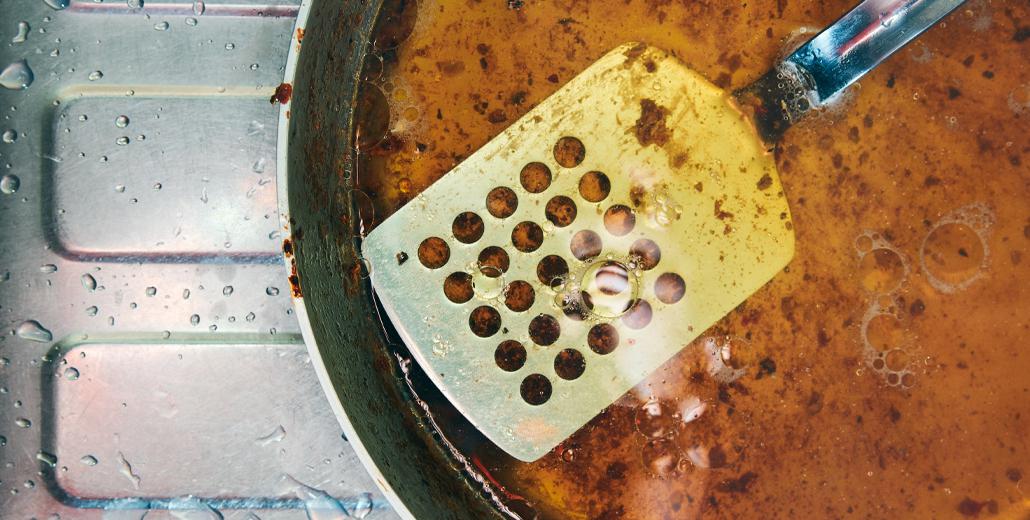
You love to cook, but you also love your plumbing. Unless you also love high repair bills, it pays to know what to do with leftover grease and oil after cooking. Disposing of grease properly when you’re finished cooking is one of the most important ways to avoid clogged drains and sick septic systems.
Why Proper Grease Disposal is Important
What not to do with leftover grease and oil is probably more important than what you do with it. Don’t send it down the drain, not even with gallons of hot water.
Oily substances can leave a layer of muck on your drainpipes and congeal. Soon, this residue accumulates and picks up other matter flushed down the drain. Eventually, you’ll end up with a monster clog of greasy garbage.
Reusing Grease and Oil
Your grandma (or great-grandmother) would approve. Many home cooks from bygone days saved bacon grease or beef tallow for flavoring food. If you go back even further, you’ll learn they even used it for lighting!
You don’t have to go that far but using bacon grease and other fat drippings from meat adds amazing flavor to many savory dishes.
Professional cooks save deep-frying oil for future use. Strain it through a paper coffee filter and refrigerate to prevent spoiling until you can reuse it.
Recycling Oil
Yes, Virginia; you can recycle your cooking oil! If you can’t reuse the oil but still want to keep it out of the landfill, you can send it to a recycling center. Many companies convert used cooking oil to biofuels. It’s a win-win for cooks and the environment.
Check with City of Nashville Recycling Services for collection locations.
Recycling Grease
Used grease makes an excellent food for wild and domestic birds during cold winter months. Fill a small container with melted (not hot) grease and birdseed and place somewhere cold to solidify.
Slip the resulting “suet cake” into a mesh onion bag and tie to a tree for an easy ad hoc birdfeeder. Or mix with rolled oats as an energy boost for your chickens.
Disposal of Grease and Oil
If you can’t reuse it or recycle it, you may simply have to throw it away. If this is the case, you should take a few steps before dumping it in your garbage can.
For grease, allow the fat to cool and solidify before disposal. Then, scrape it into a sealable container that is also destined for the trash. Empty coffee cans are favorite choices.
You can dispose of cooking oil the same way, but make sure the container is well sealed before tossing it in the can.
And if you end up pouring it down the drain anyway, make sure you make an appointment with the pros at Benjamin Franklin Plumbing in Nashville. They can blast that greasy clog out in no time.
